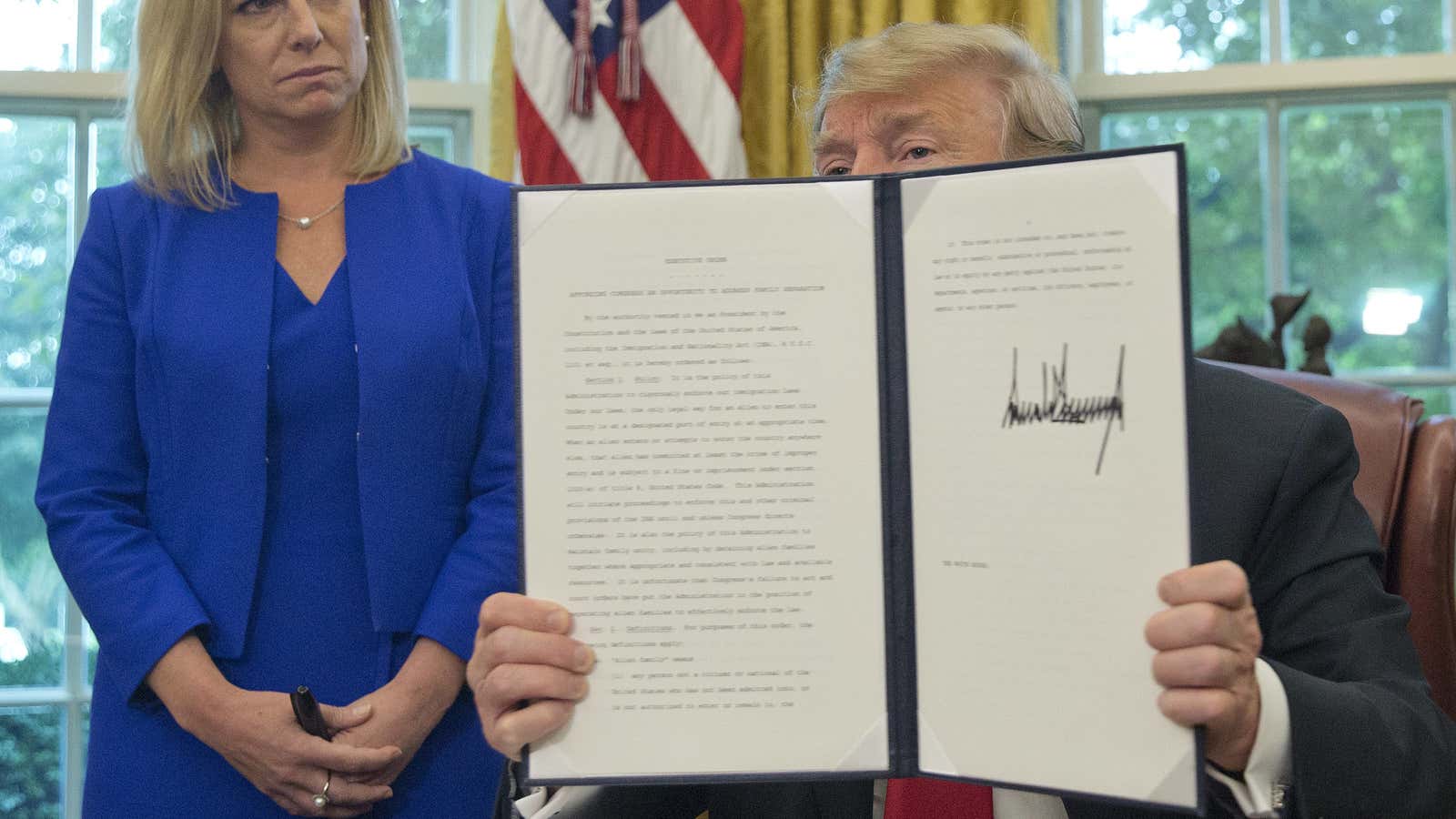The suspension of various work-related US visas by president Donald Trump this week includes a provision to specifically bar people coming to the US to become au pairs.
The J-visa program has historically provided cheap live-in childcare to families who can house and feed a young foreigner, while spending about $1,500 a month for wages and fees to a facilitating organization. Families are expected to take the au pair with them on family outings and vacations.
The program has long been plagued by reports of host families who overwork their au pairs, or treat the workers “like slaves.” At the statutory maximum of 45 hours a week, the nannies end up getting paid about $4.35 an hour, far lower than the prevailing wages in many American locales where au pairs are popular.
Au pairs currently in the US under the J-visa program were granted a bit of a reprieve from its failings. On Monday, the US Supreme Court declined to review a case (paywall) that established the foreign nannies must be paid in accordance with local laws.
Overall, Trump’s order suspends work-authorizing J-visa issuance to anyone but professors and researchers, as well as all H-1B, H-2B, and L visas. It does not apply to foreigners already working in the US, green-card holders, the spouses and children of US citizens, or other people officials determine to be “in the national interest.” It expires on Dec. 31, 2020.
That means no H1-B visas will be issued for foreign coders or engineers. Hotels and theme parks can’t hire summer-season workers from abroad. Multinational-companies won’t be able to transfer managers into their US groups using L-1 visas, and there will be no J-1 visas for foreigners wishing to come to work as camp counselors or interns.
